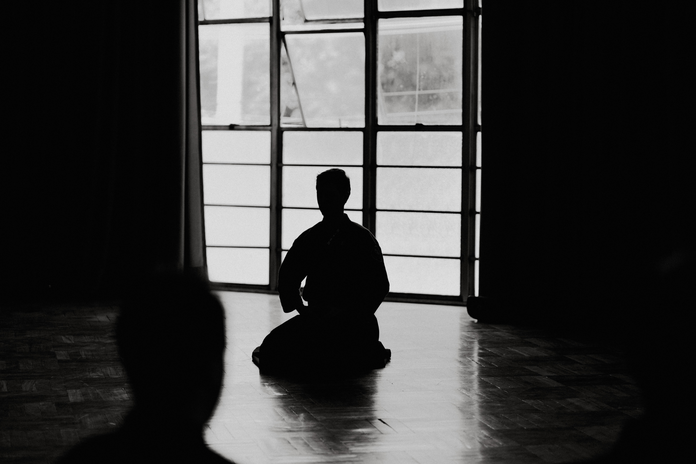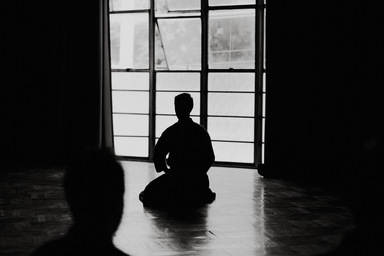Today’s ever-changing world is — to say the least — stressful. As COVID-19 restrictions are always changing and finals are going to be administered in person for the first time since 2019, it can be challenging to adjust. Luckily, practicing meditation and mindfulness can be the perfect solution to easing the new-normal jitters.
How Can Meditation Help Cope With Change?
Meditation allows us to take time to be with ourselves without distractions and learn to become comfortable with the uncomfortable. Taking as little as ten minutes out of your day to meditate has been linked to reduced stress and improved mental clarity by both scientists and avid meditators. According to Mayo Clinic, those that meditate regularly can reap benefits such as “gaining a new perspective on stressful situations”, “increasing self-awareness”, “reducing negative emotions” and “increasing patience and tolerance”.
Meditation can serve as a balancing force while we navigate coming out of our homes for the first time in well over a year. According to Steven M. Cohen in his book “Leading From Within: A Guide To Maximizing Your Effectiveness Through Meditation,” “using meditation techniques such as refocusing on the breath or repeating a mantra in your head a few times are useful to take a break and bring you back into a place of balance, equanimity and perspective.”
This is especially helpful when navigating ever-changing mask mandates, impending finals and other daily stressors.
The Power of Routine
Not only does meditation create balance and help focus the mind, but adding daily meditation into your routine also helps combat the negative feelings associated with change. The most simple way to feel comfortable as we experience constant change is to establish a daily routine. This can include waking up at the same time every day, exercising regularly and (most importantly) meditating. Establishing a routine allows us to take care of our physical and mental health and creates normalcy during a time where life is anything but normal.
As a third-year student at the University of Maryland, I have become a master of constant change. My entire college experience has been a series of drastic changes that I have learned to navigate with the help of meditation.
When I arrived on campus in August of 2019, I thought that move-in would be the biggest shock that I would experience during college. It was my first time living on my own, I was in a new state and I knew no one.
However, I was very mistaken with the university shutting down that March along with the rest of the world. I had to learn how to re-acclimate to life in my hometown and how to be a virtual college student.
I then arrived back to campus for my second year. I was still taking classes online while balancing extracurriculars and abiding by the fast-changing university regulations.
The last two years were the first time I had ever experienced a historic event of this magnitude and it was during a time in my life where things were already rapidly changing. I was constantly stressed over school work and anxious about the health and safety of myself and my loved ones. I needed to find balance, so I created a daily routine and centered it around meditation.
After I added meditation to my daily routine I found that it not only added balance to my life but it also gave me a space to forget about my worries. Even if it was only for a few minutes, mediation allowed me to tune out the world and the routine surrounding it made me feel in control of my life even when things were out of control.
Mantra Meditation
Meditation comes in many forms and every person has a method that works best for them. When I started my journey with meditation I used guided meditation. As a beginner, I had a difficult time keeping my mind from wandering during meditation. Listening to a person tell me how to meditate was a great way to get started and become more comfortable with meditation.
However, there is one form of meditation that can help us become more comfortable with discomfort than any other called mantra meditation.
According to Cohen, “mantra meditation consists of repeating a mantra either during meditation or throughout the day and it can be extremely powerful at restoring balance.” Reciting the same word or phrases over and focusing on breathing helps quiet the mind and aid in self reflection.
The mantras you use in your meditation can come in many different forms and can take inspiration anywhere. All mantras should ground you in your meditation and help reduce anxiety.
Examples of mantras pertaining to pandemic and finals related anxiety are as follows:
- I accept what I cannot change and am grateful for what I have.
- I am resilient and welcome change into my life.
- I can get through everything life brings my way.
- I am smart, I am enough and I am more than what is making me anxious.
- My grades do not define me, I define me.
- I am prepared and ready to do my best on my exams.
The key to mantra meditation is to switch your attention from its current focus to your mantra word or phrase. This will change the way your mind is functioning during meditation and facilitate different thought patterns. Eventually, the mantra will serve as a reminder to return to a relaxed state when life becomes stressful.
There is no way of knowing what changes will come next, but meditation allows us to become more resilient. Whether it’s mantra meditation, guided meditation or any other form, quieting the mind and refocusing on the good in life can make a meaningful difference. Life is full of change and discomfort and mediation is the key to coping with it.


